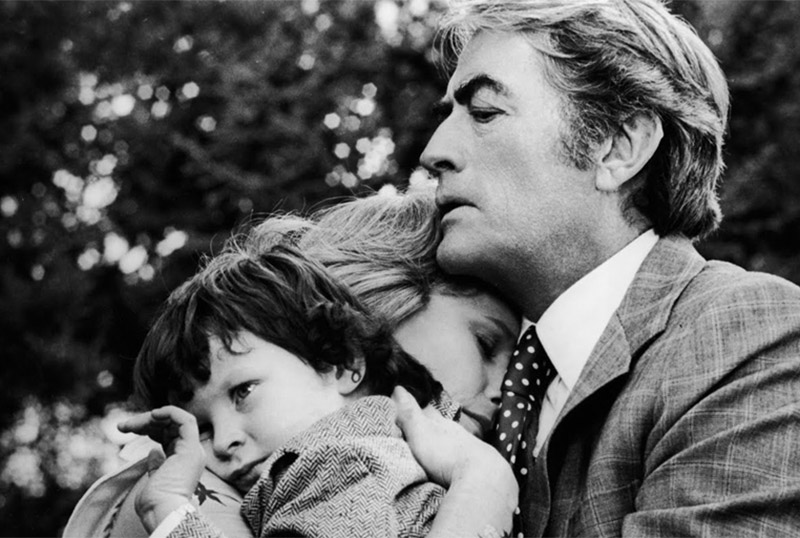As Poltergeist III director Gary Sherman says, “We are fascinated by the unknown.” Writer and director Jay Cheel’s five-part documentary series Cursed Films explores the myths and legends behind some of Hollywood’s notoriously “cursed” horror film productions. From plane accidents and bombings during the making of The Omen to the rumored use of real human skeletons on the set of Poltergeist, these stories are legendary amongst film fans and filmmakers alike. But where does the truth lie? Now streaming its first episode on Shudder, Cursed Films reveals the events that haunted these productions through interviews with experts, witnesses and the cast, directors, and producers who lived through these real-life events. Were these films really cursed, as many believe, or just the victims of bad luck and bizarre circumstances?
After having the opportunity to view two episodes in advance — Episode 2, Poltergeist and Episode 3, The Omen, streaming on April 9 — the biggest thing that stood out to me was the eclectic group the series gathered featuring experts in their respective fields who explain the histories of these movie curses while sharing differing opinions and viewpoints regarding whether we should be skeptical or more open-minded to the possibility of the mythologies being more than just a collective conspiracy. From those who work in the industry, such as Ryan Turek, VP of Development for Blumhouse Pictures or director Richard Donner, to hardcore fans and actual witches, those featured in the docuseries give viewers a chance to explore these prospects through a variety of lenses (especially those not often explored).
RELATED: Mandatory Streamers: Cursed Films Explores Real Movie Horrors
Viewers might feel some of the people featured made for odd choices, but in order to really dive into the subject of curses and mythical concepts, hearing from people from all walks of life gives skeptics and believers an equal voice as arguments are laid out and left open for the fans to decide which ideology fits best with their own beliefs. Most importantly, the series keeps the stories grounded in reality as a baseline allowing for opposite points of view to be explored while remaining respectful of the real losses of life that took place during (and after) the making of these movies, as those deaths have now been mythologized.
The Poltergeist episode, in particular, leans more towards the skeptical side as our hosts dive into the history of the movie, including the tragic deaths of stars Dominique Dunne and 12-year-old Heather O’Rourke. Another big piece of cursed “evidence” stems from the decades-long rumor that real skeletons were used in the scene where actress JoBeth Williams is in a muddy swimming pool full of them, not to mention the death of Poltergeist II actor and shaman Will Sampson as well as the death of Julian Beck, who played Kane in Poltergeist II and whose death mask was used as a prosthetic for Nate Davis to play the character and still look like the late Beck in the Poltergeist III (yikes).
As the cursed theories continue to thrive due to these tragedies and arguably odd occurrences and largely thanks to the spread of information online, there is a significant reminder in the second episode that those involved in the making of the film don’t appreciate the mentality behind the belief of the movie being cursed. Poltergeist’s special make-up effects artist Craig Reardon says that “it’s an insult” to O’Rourke’s memory that people believe the use of a real skeleton would have been related to her death, adding that the skeleton had “fuck all to do with” Dunne being murdered by her boyfriend. Reardon also touches on the history of real human skeletons being used in films for years, such as in William Castle’s House on Haunted Hill (1959) or director James Whale’s Frankenstein (1931), noting that low-budget films preferred to shop at a biological supply house for the real thing instead of paying someone to sculpt a fake skeleton.
Where the Poltergeist episode feels like a complete debunking of any supposed curse, the third episode of Cursed Films featuring The Omen will send chills down the spines of even the biggest skeptics out there. The Omen director, Richard Donner, shares that Robert Munger, the religious adviser on set, told him that they were “treading on very thin ice,” explaining “you’re inviting the devil into this and bad things are going to happen.” The list of “evidence” regarding a curse (or demonic presence as some argue) is extensive, including two planes getting hit by lightning carrying star Gregory Peck and writer David Seltzer days apart; another plane crashing and killing everyone on board that Peck was initially meant to be on; executive producer Mace Neufeld and his wife narrowly avoiding a bombing in London; a car accident leading to a decapitation; an animal handler being eaten by a lion; and not to mention the memorable sequence in the film with star Lee Remick being legitimately terrified while trapped in a car as baboons attacked the vehicle, seeing as how the car really stalled as they were filming.
The cast and crew of The Omen couldn’t help but be wary after the number of terrifying incidents conceivably grew passed the point of coincidence. Interestingly enough, though, Donner and Neufeld ultimately feel The Omen was blessed, not cursed, as they “got through it” and the movie ended up being a huge success at the box office, earning $60.9 million from a $2.8 million budget. Where religious experts felt the Antichrist wanted to stop this movie from being made, others who believe in that type of influence or entities like our favorite little devil spawn Damian argue that the Antichrist actually wanted this film to be made due to the direct exposure of audiences to the Devil, making him visible. You can make of that what you will.
RELATED: Greg Nicotero Shares Look at Spider Puppet for Creepshow Season 2
Whether or not you believe in movie “curses,” the documentary series will intrigue horror fans with behind-the-scenes details of some of the most classic scary movies ever made as our hosts discuss the legitimacy and history of these curses. Within the fascinating realm of rational reasoning vs open-minded beliefs, part of what makes the horror genre special is the ability to escape. Some will be drawn to patterns that help to make the world feel a little smaller as others leave the patterns solely within the fictional world onscreen. As film critic April Wolfe says, conspiracy theories can help us deal with “the fragility of human life” since anyone can leave us at any time and that can be too difficult sometimes to wrap our head around. The biggest question now, and always, is how realistic some of those conspiracy theories might actually be, and filmmaker Jay Cheel has given fans a wonderful outlet to explore some of those questions with Cursed Films.
Cursed Films
-
Cursed Films
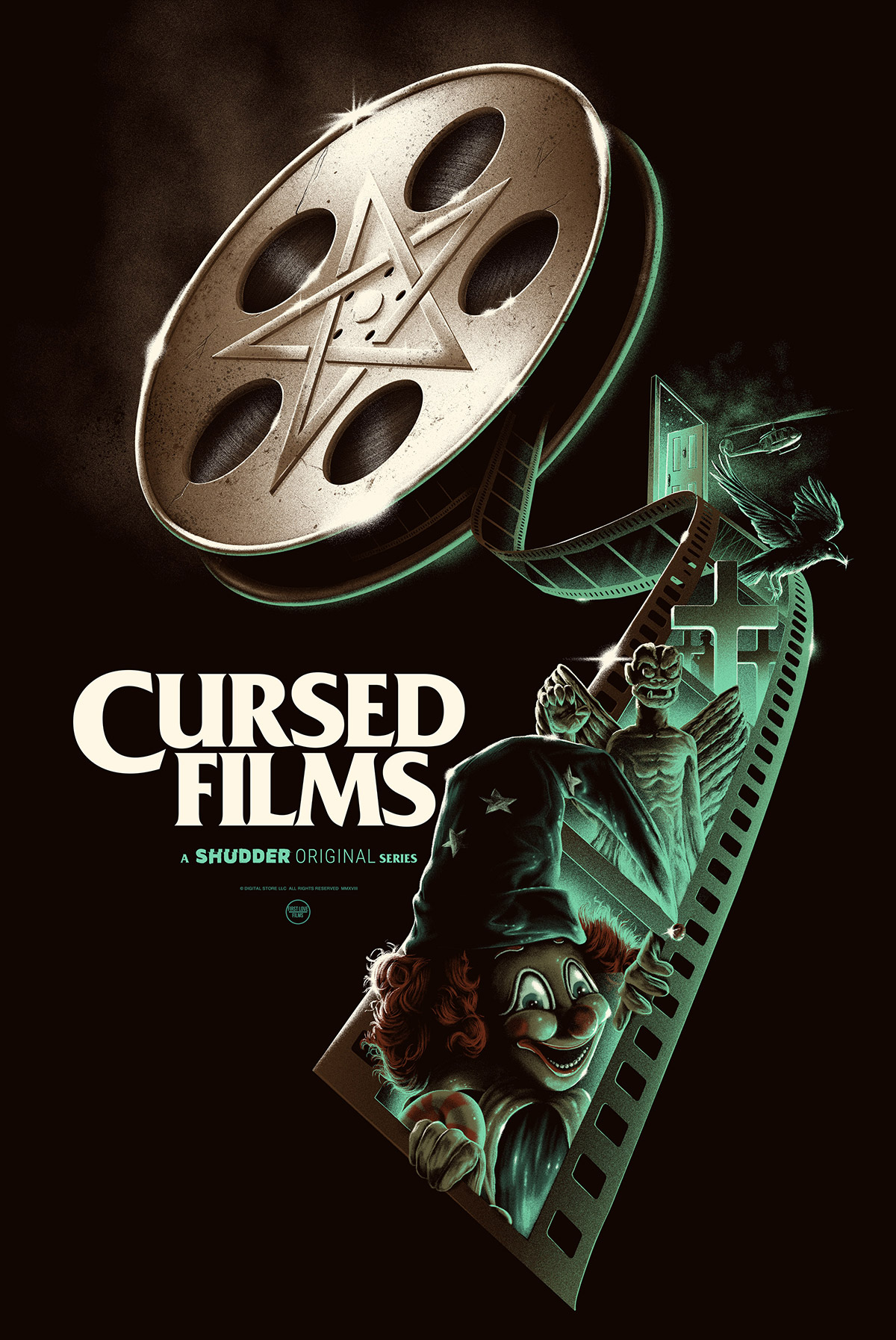
-
Cursed Films
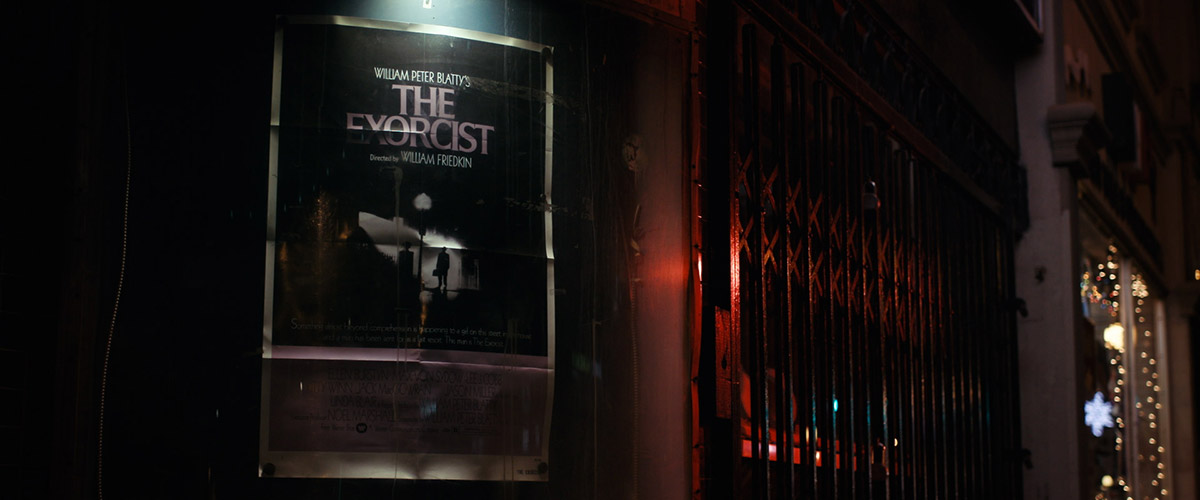
-
Cursed Films
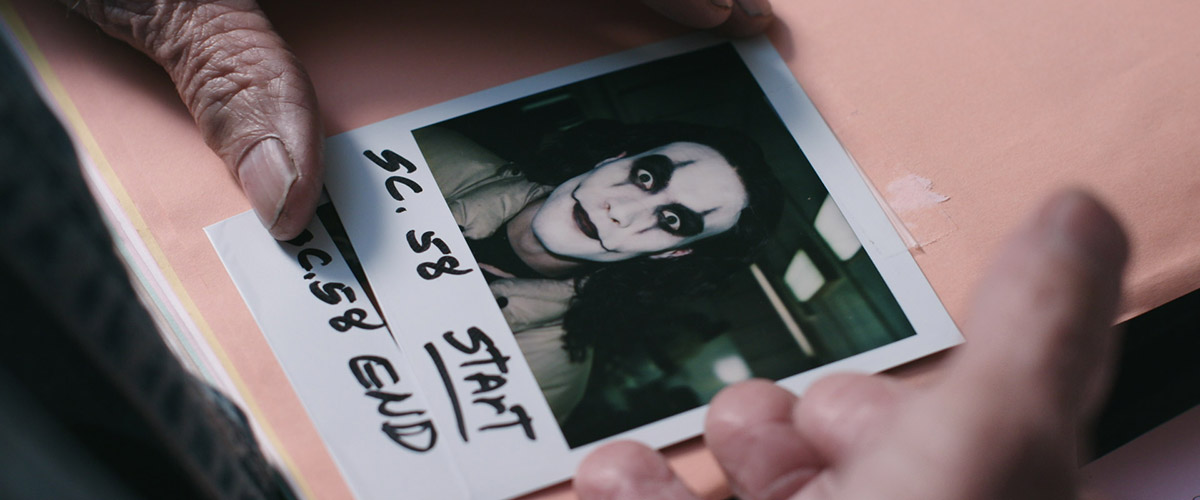
The Crow Polaroid
-
Cursed Films
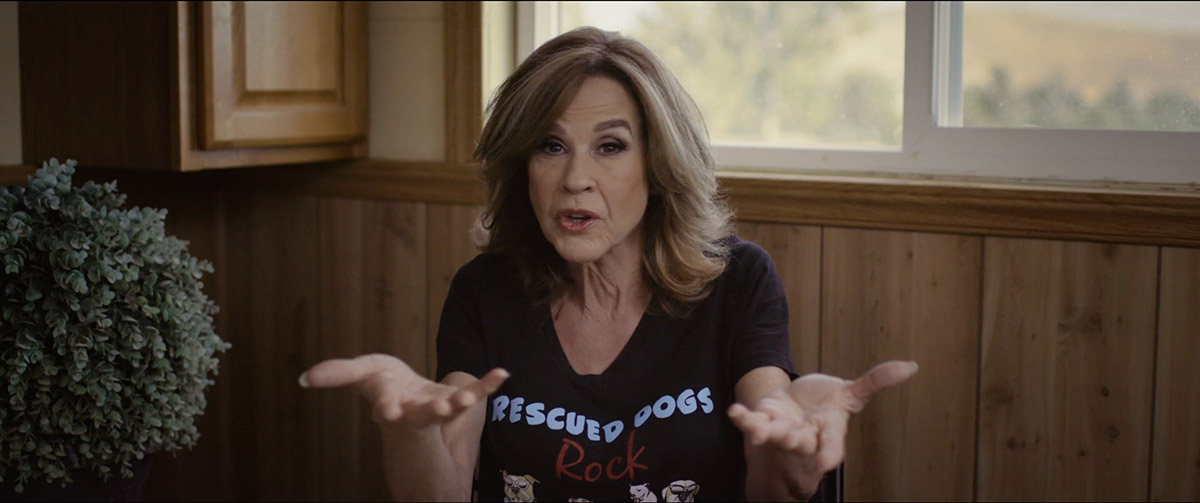
The Exorcist star Linda Blair
-
Cursed Films
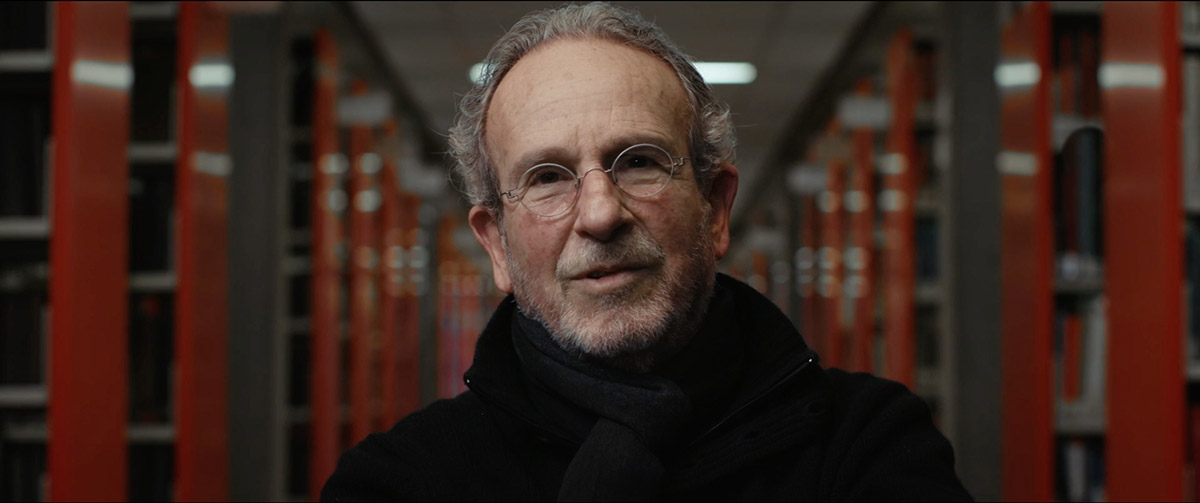
Poltergeist III director Gary Sherman
-
Cursed Films
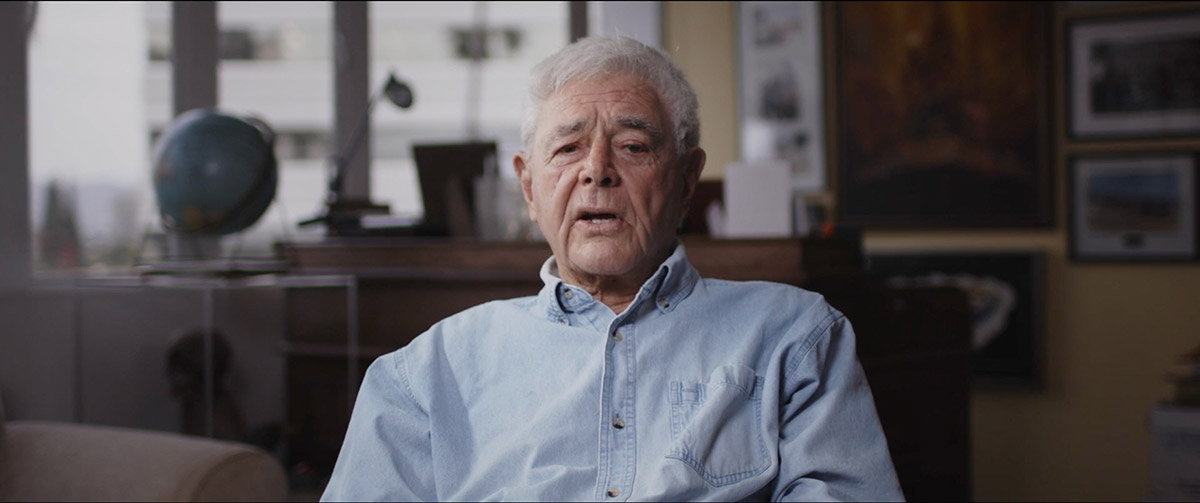
The Omen director Richard Donner
